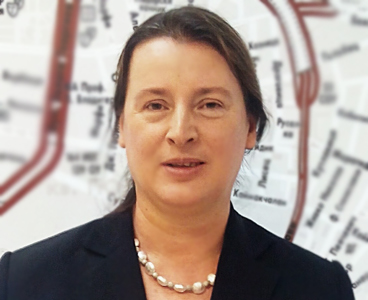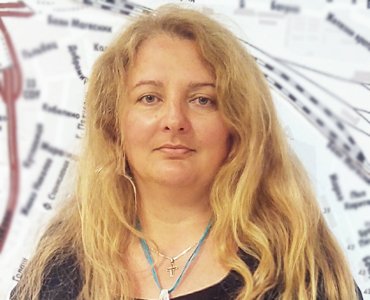Every minute one person in the world falls victim to human trafficking. Over the 2010-2012 period alone, 31,000 people within the bounds of the EU admitted to having been exploited in this manner. According to Eurostat data, 80 percent of them are women and 12 percent – underage. Seventy percent of the registered victims were trafficked for the purpose of sexual exploitation with traffickers’ revenues amounting to EUR 32 billion a year on a world scale.
According to data of the Council of Ministers’ National Commission for Combating Trafficking in Human Beings, every year 500 to 550 Bulgarian nationals are registered as trafficking victims in countries of the EU. Almost 80 percent of the victims are targeted for the purpose of sexual exploitation. Almost all are women. Trafficking victims are guaranteed the fundamental right to immediate legal protection by force of the Council of Europe Convention on Action Against Trafficking in Human Beings. “Upholding Rights! Early Legal Intervention for Victims of Trafficking” is a project involving six European countries – Ireland, Lithuania, Great Britain, Scotland, Croatia and Bulgaria. The lead organization is the Immigrant Council of Ireland; the Bulgarian partner on this project is the Bulgarian Gender Research Foundation. At a forum in Sofia, the participants in the project shared their experience in good practices for providing trafficking victims early legal intervention, assisting their social reintegration and helping them as witnesses.
 “Victims of trafficking must have guaranteed access to specialized legal aid,” says Genoveva Tisheva, Managing Director of the Bulgarian Gender Research Foundation:
“Victims of trafficking must have guaranteed access to specialized legal aid,” says Genoveva Tisheva, Managing Director of the Bulgarian Gender Research Foundation:
“So as to be identified and provided full social protection by the administrative bodies, whether the case reaches court or not, each victim of trafficking must be ready for judicial proceedings. Unfortunately, in Bulgaria there is no early legal intervention, that is why these victims remain unidentified and unprotected. With this project we aim to stop this happening in Bulgaria and to provide state financing for consultations in these cases. We have ascertained that what trafficking victims find most useful are the services offered by NGO experts.”
What are the good practices in the world and more specifically in Ireland – the answer from project coordinator Nusha Yonkova:
 “Ireland, as other EU countries, is currently encountering difficulties in providing legal aid to victims of trafficking. But in Ireland, unlike Bulgaria, there are independent legal centres which put up the funding, by raising money from abroad or local religious organizations. This means there are highly qualified legal experts working with the victims. On the downside, the police very rarely use these legal centres directly. There are certain apprehensions that when a lawyer comes into the picture this may confuse the trafficking victim in the witness box and hamper the investigation. I work for a legal centre in Ireland called Immigrant Council and our attorneys prep some of the best witnesses for successful investigations that later stand up in court. As to good practices, the very title of our project speaks for itself – the idea is for all EU members and especially the authorities whose job it is to work in the sphere of human trafficking to recognize the fact that early legal intervention by a lawyer in different cases - who will assess the situation and explain to the victim his or her choices – is usually the way to obtain good results that will benefit the victim but will also mean just verdicts for traffickers.”
“Ireland, as other EU countries, is currently encountering difficulties in providing legal aid to victims of trafficking. But in Ireland, unlike Bulgaria, there are independent legal centres which put up the funding, by raising money from abroad or local religious organizations. This means there are highly qualified legal experts working with the victims. On the downside, the police very rarely use these legal centres directly. There are certain apprehensions that when a lawyer comes into the picture this may confuse the trafficking victim in the witness box and hamper the investigation. I work for a legal centre in Ireland called Immigrant Council and our attorneys prep some of the best witnesses for successful investigations that later stand up in court. As to good practices, the very title of our project speaks for itself – the idea is for all EU members and especially the authorities whose job it is to work in the sphere of human trafficking to recognize the fact that early legal intervention by a lawyer in different cases - who will assess the situation and explain to the victim his or her choices – is usually the way to obtain good results that will benefit the victim but will also mean just verdicts for traffickers.”
"You say you are Bulgarian, but you do not know Bulgarian" – this reproach from officials in Bulgaria has been faced by quite a few by our compatriots from the historical Bulgarian communities around the world. One of them is Bledar Alterziu from..
The survival of millions of people around the world, living in conditions of war, hunger, disease and immense despair, is at stake every day. We often approach immigrants from such countries with hostility rather than understanding. What they have..
Modernizing critical thinking skills, fact-checking skills and media literacy are essential for society, especially for young people in Bulgaria - the country with one of the lowest media literacy indices in the EU, reports the educational platform..

+359 2 9336 661
